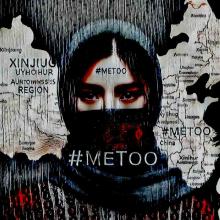-

This is a two part article. The first part focuses on the current state of China's military capabilities while also exposing the vulnerabilities undermining its strategic ambitions.
The age-old adage coined by Deng Xiaoping, "hide your capabilities, bide your time," appears to have subtly evolved into a contemporary mantra: "show your capabilities, let everyone speculate." This paradigm shift was strikingly evident in the recent alleged unveiling of China’s elusive sixth-generation fighter jet, purportedly the first of its kind in the world.
-

India's foray into Antarctic geopolitics began in 1955–56 with “The Antarctic Question,” marking the country's official intervention under then-Prime Minister Jawaharlal Nehru. As historian Sarvepalli Gopal observed, Nehru’s geopolitical vision was rooted in advocating world peace and fostering solidarity among post-colonial nations, positioning India as a diplomatic force on global platforms traditionally dominated by Western powers.
-

Since the Taliban's return to power in August 2021, Afghanistan has faced a sharp decline in human rights, with women and minorities bearing the brunt of repression. The Taliban’s enforcement of moral policing, public floggings, and the systematic dismantling of girls' education reflects their rigid interpretation of Sharia law despite global condemnation. This article examines the impact of these policies on Afghan society, particularly women and girls while highlighting the Taliban’s justification through religious edicts.
-

In Greek mythology, Icarus was the son of an architect called Daedalus. They wanted to escape from the island of Crete since the king had imprisoned them for sharing their secrets. Daedalus had constructed wings from birds’ moulted feathers and some other materials. He had used the beeswax for the ‘construction’ of the wings. Daedalus had warned his son that he should not fly too high. But Icarus became overambitious and flew too close to the Sun. The heat melted the wax in his wings, and he drowned in the sea.
-

The India-Russia relationship has entered a new phase, marked by intensified bilateral engagements over the past six months. Prime Minister Narendra Modi visited Moscow twice this year, in July and October, to strengthen ties with Russia, a steadfast ally. Most recently, Defence Minister Rajnath Singh’s three-day visit to Moscow (December 8–10, 2024) signaled a new chapter in the India-Russia defence partnership.
-

As the United States continues to provide both overt and covert support to conflicts in Eurasia and the Middle East, a growing grassroots initiative known as the 'Defend the Guard' movement has emerged to challenge federal military policies at home. Originating in 2015 with the introduction of the 'Defend the Guard Act' by the West Virginia legislature, this movement seeks to protect the constitutional rights of states and National Guard personnel.
-

Mr. Chairman, Director-General, Distinguished Delegates, Civil Society Colleagues:
-

Mr. Chairman, Director-General, Distinguished Delegates, Civil Society Colleagues:
As advancements in artificial intelligence (AI) continue to transform the global technological landscape, civil society calls for proactive measures under the Chemical Weapons Convention (CWC) and the Organization for the Prohibition of Chemical Weapons (OPCW) to address emerging AI-driven threats. AI can improve verification, monitoring, and preventive actions within CWC mandates. However, it also poses unique risks in both civilian and military applications.
-

Israel faced a major setback on October 7, 2023, when Hamas-led Palestinian militant groups launched a successful attack. After this successful terror attack, many questions were raised concerning Israeli technological superiority and robust defence mechanisms in place. Despite Israel's technological superiority, Hamas managed to bypass these defences. The issue likely wasn't with the technology itself; the surveillance systems along the Israel-Palestine border were reportedly functioning as expected.
-

Four months ago, on May 10, 2024, the global Uyghur movement received a massive shock by serious allegations of sexual harassment involving two of its prominent leaders: Dolkun Isa, Executive President of the World Uyghur Congress (WUC) headquartered in Munich, Germany, and Nury Turkel, Chair of the United States Commission on International Religious Freedom and Board Member of the Uyghur Human Rights Project (UHRP). The scandal has laid bare many truths - severe organizational failures, systemic corruption, and a blatant disregard for victims' (women's) rights.
Paxton ported to drupal by DropThemes.in